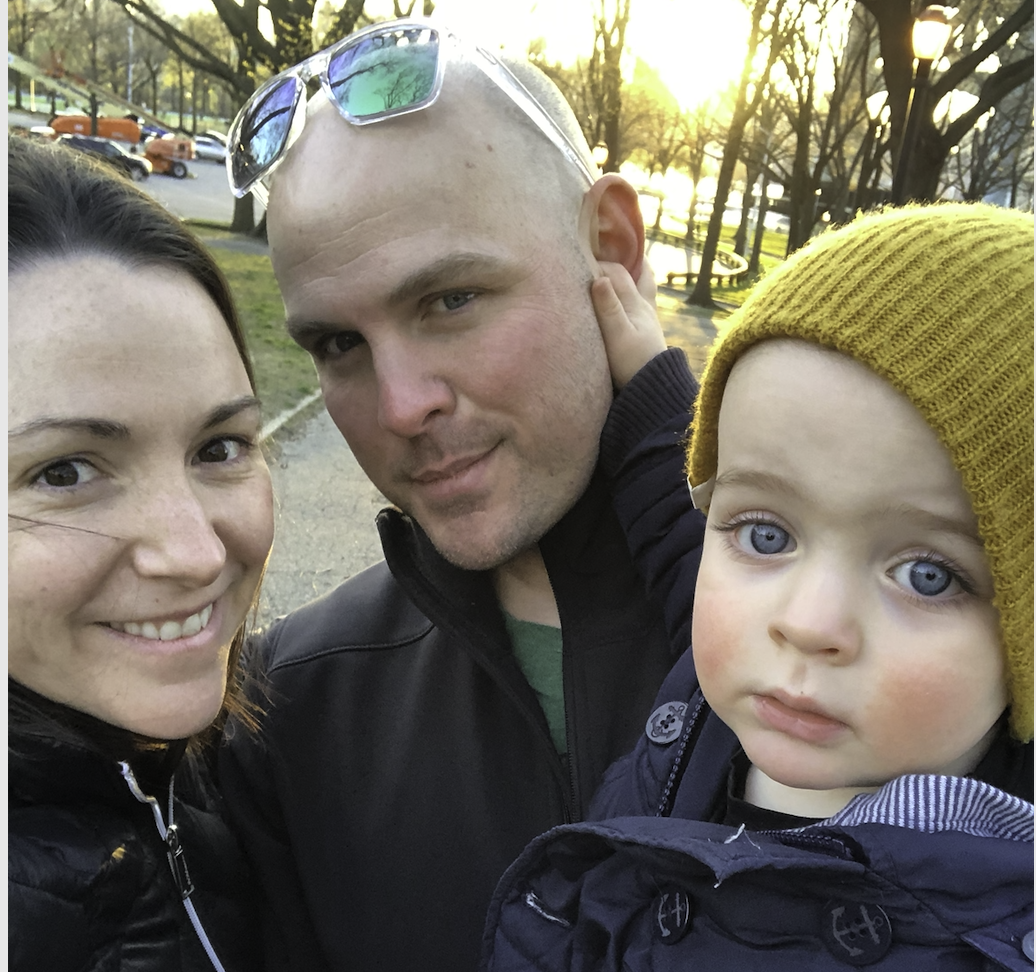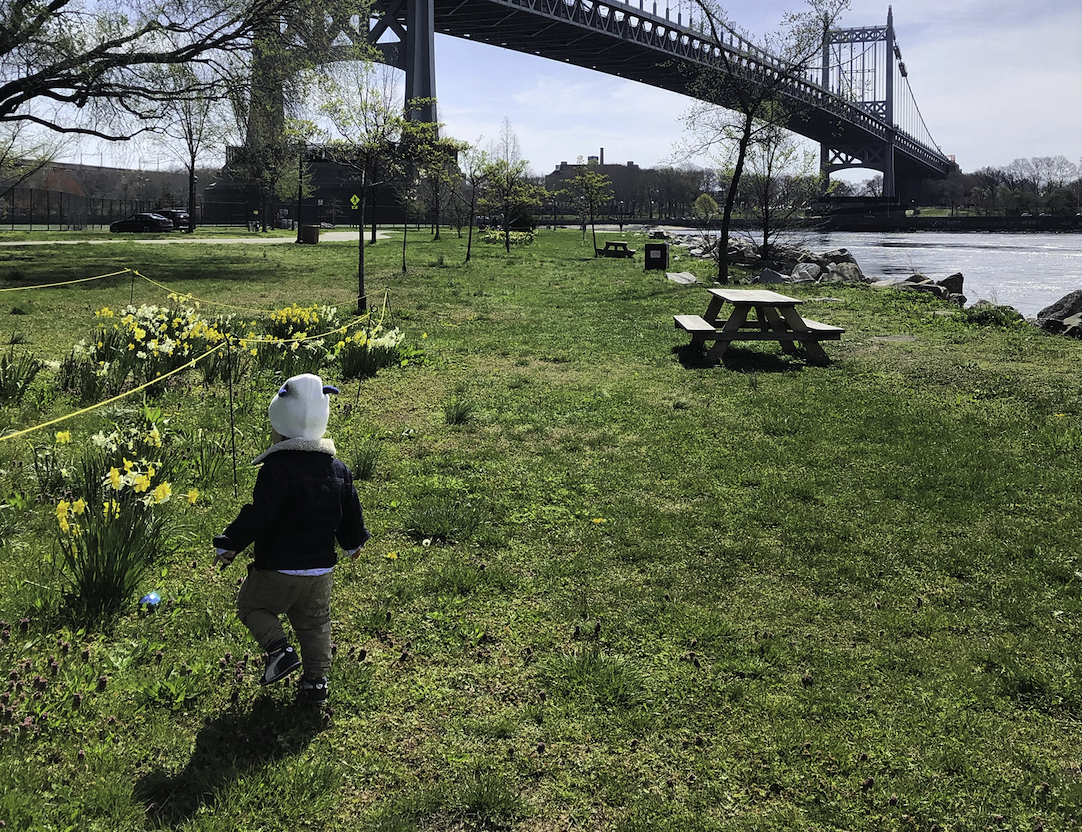Raising a toddler right now — or a child of any age for that matter — can raise questions that many parents don’t feel equipped to handle or answer. In my own experience, each day has brought with it something new that I need to address. On one recent nice day, my husband, son, and I went out as a family to the park next to our house (maintaining an appropriate distance from others, of course). We had just found a secluded spot to play when my toddler son, Hunter, spotted two siblings around his age kicking a ball together. He had some toys with him, so he promptly picked them up and started walking over to the other kids. He wanted to share his toys and play with them — a behavior any parent would be thrilled to see. But, because of social distancing, I had to stop him from engaging with them. He tried a few times before giving up.
It broke my heart to see my kindhearted, social baby try to make friends, only to have me prohibit him from doing so. At this stage in his life, in normal times, I am supposed to be encouraging him to make friends, share, and play with other kids. But with COVID-19, we must of course keep our kids away from others. I know that social distancing is imperative to stop the spread of the virus, but try explaining that to a toddler. I worry about the long-term effects, and whether this will affect Hunter’s ability to socialize.

Luckily, after speaking with an expert, I learned that’s not likely. “While this is not something that has been studied directly, inferring from other research leads me to believe that the drive to engage with others is not going to go away in the span of months,” explains Laura Phillips, Ph.D., a Clinical Neuropsychologist with the Child Mind Institute.
And we don’t necessarily need other children around to build social skills. Nearly every interaction between a parent and a child is an opportunity to develop those skills. “When a baby or toddler cries, babbles, or asks a question of his parent, and the parent then responds in a warm, attuned, and sensitive manner, brain connections that underlie social and communication skills are built and strengthened,” Phillips says. “These ‘serve-and-return’ interactions help children develop a sense of self, a sense of importance, and an understanding of their feelings. Eventually, they come to understand others’ feelings, too, and this contributes to the development of empathy.”
This means that while we may not be able to have our children engage in-person with their friends in these challenging times, promoting play within our immediate family will continue to help them build social skills. If you’re facing the same challenge with your kids, who miss their friends, try these suggestions.
Acknowledge your child’s feelings
If your child expresses interest in playing with another child in the park, you can say, “I love how friendly and kind you are to our neighbors in the park. We can’t play with them right now, but why don’t you take my hand and we can wave ‘hello,’” or, “Right now we all have to stay home with our families. That is helping us all stay healthy. I know you miss your friends and you want to play at the park, but there are a lot of fun things we can do together at home!” Phillips suggests. Provide a simple and clear explanation, and then propose an alternative.
Make time for one-on-one play
Child-directed (meaning the child chooses what and how to play, while the parent describes, imitates, and praises the child’s play) should be about 10 to 15 minutes a few times per week, Phillips notes. It promotes parent-child bonding (which is critical for security during stressful times), fosters language and social development, and builds a sense of self-direction and self-confidence in the child. You can also encourage make-believe, or pretend play, which helps nurture not only creativity, but social competency, Phillips adds. And imaginary play, or make believe with a sibling if you have multiple children, provides opportunities to practice negotiation, turn-taking, sharing, and conflict resolution. Even though playdates are on hold right now, there are plenty of ways for children to continue to flex their social and emotional muscles.
Set up virtual playdates
Technology can help with continued connection, although playdates via videoconference may be too abstract for preschool-aged children to manage, Phillips says. FaceTime with family members, like grandparents, for storytime may be easier for young children to understand and enjoy. And “drive-bys” are a more concrete way for very young children to keep in touch with classmates that they miss. If your young child is going to miss his birthday party, for example, a birthday “tour,” during which a parent drives the birthday child past his friend’s houses so that they can wish him happy birthday, are two creative ways to celebrate under the current circumstances.
It also helps to remember that while we don’t know how long this time will last, it is temporary. What we need to be most mindful of is that by participating in this isolation, we are engaging in the most important act of community, while also protecting our families. That is an important lesson to teach our children and to remember ourselves, Phillips says.
Follow us here and subscribe here for all the latest news on how you can keep Thriving.
Stay up to date or catch-up on all our podcasts with Arianna Huffington here.


